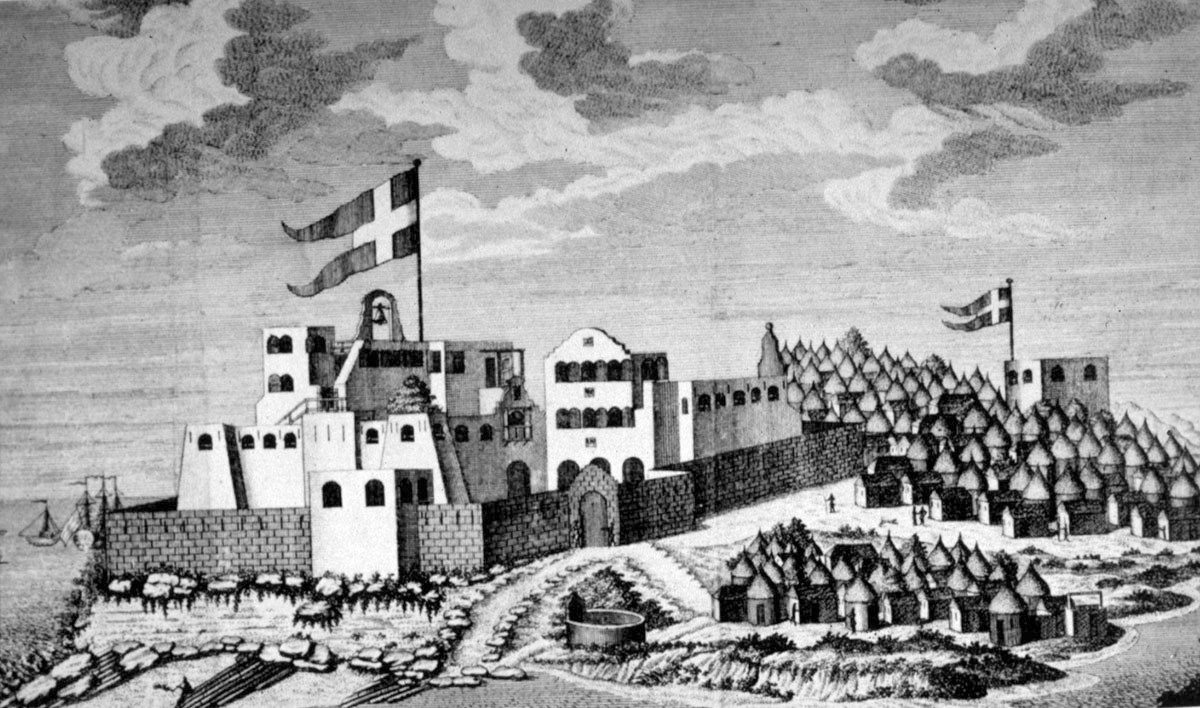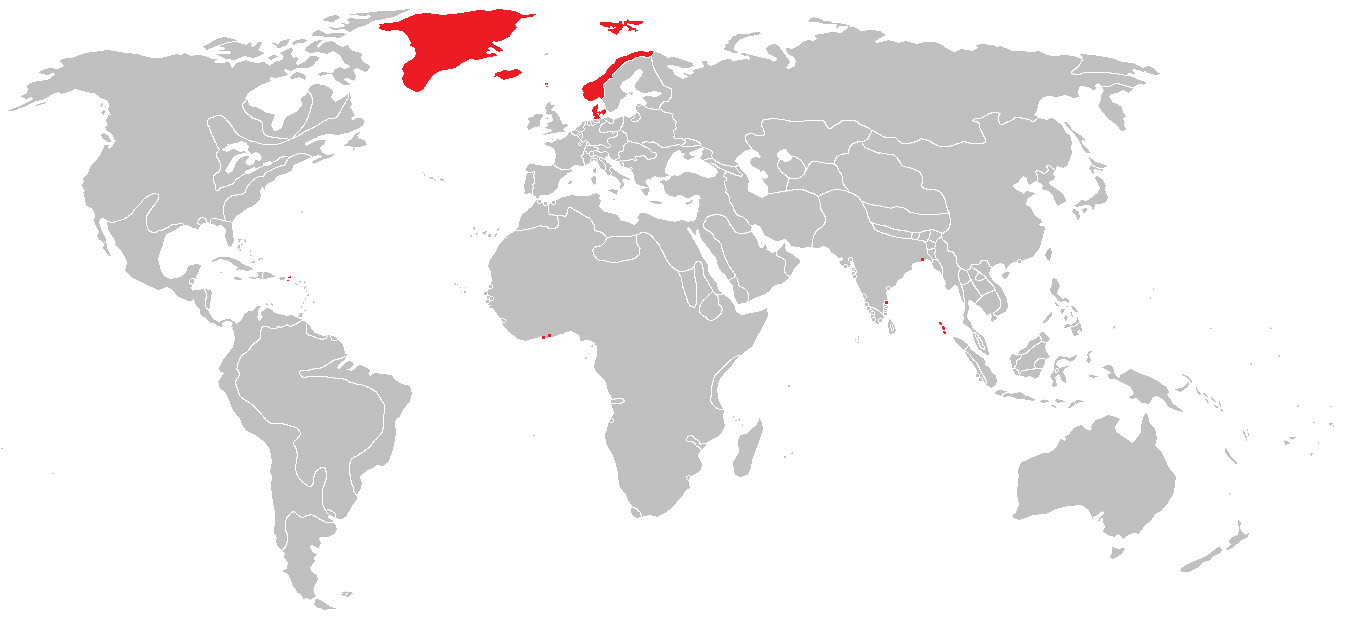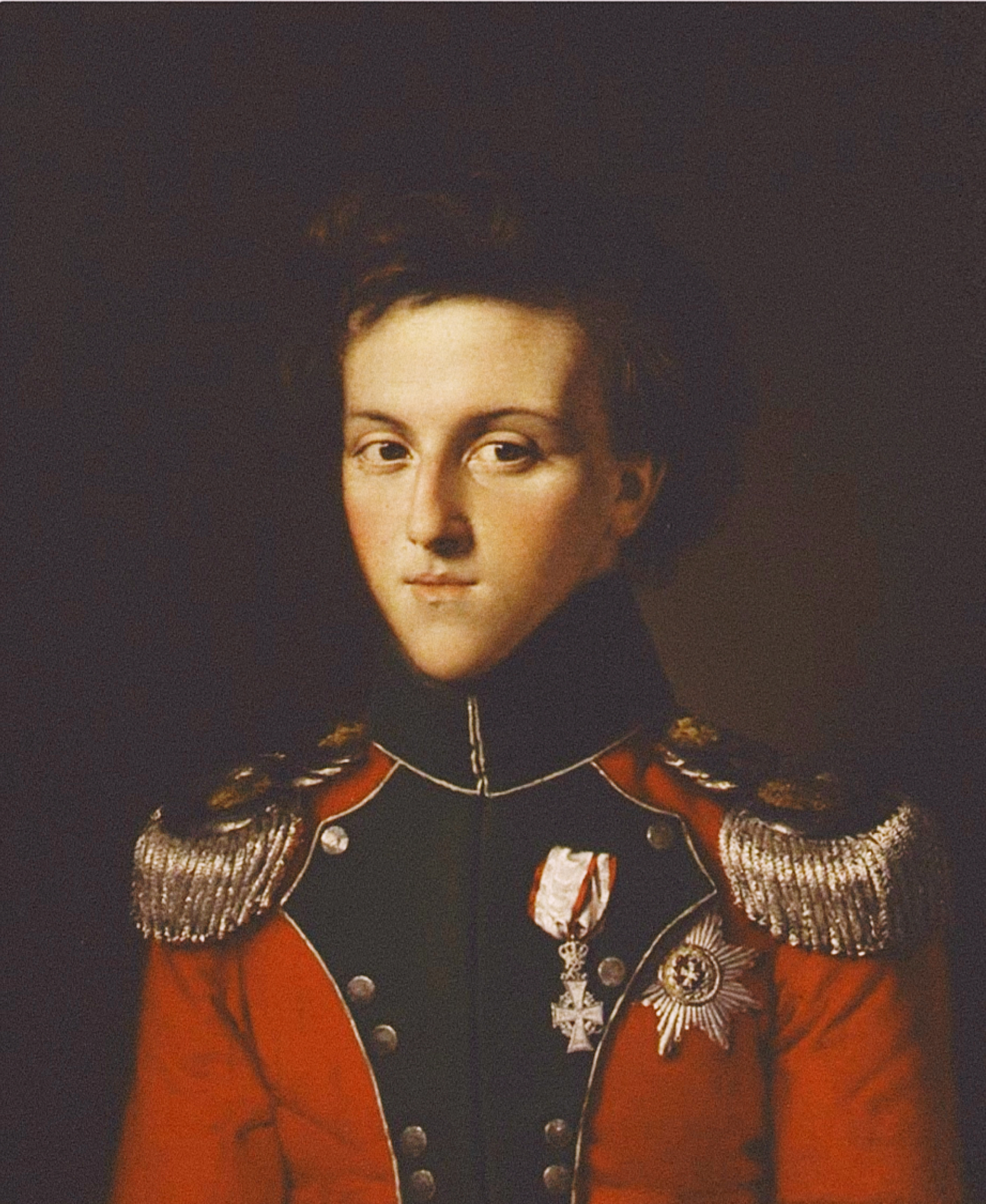|
Danish Gold Coast
The Danish Gold Coast ( da, Danske Guldkyst or ''Dansk Guinea'') comprised the colonies that Denmark–Norway controlled in Africa Africa is the world's second-largest and second-most populous continent, after Asia in both cases. At about 30.3 million km2 (11.7 million square miles) including adjacent islands, it covers 6% of Earth's total surface area ... as a part of the Gold Coast (region), Gold Coast (roughly present-day southeast Ghana), which is on the Gulf of Guinea. It was colonized by the Dano-Norwegian fleet, first under indirect rule by the Danish West India Company (a chartered company), later as a crown colony of the kingdom of Denmark-Norway. The five Danish Gold Coast Territorial Settlements and forts of the Kingdom of Denmark were sold to the United Kingdom of Great Britain and Ireland, United Kingdom and were incorporated into the British Gold Coast in 1850. The area under Danish influence was over 10,000 square kilometres. History On ... [...More Info...] [...Related Items...] OR: [Wikipedia] [Google] [Baidu] |
Denmark–Norway
Denmark–Norway ( Danish and Norwegian: ) was an early modern multi-national and multi-lingual real unionFeldbæk 1998:11 consisting of the Kingdom of Denmark, the Kingdom of Norway (including the then Norwegian overseas possessions: the Faroe Islands, Iceland, Greenland, and other possessions), the Duchy of Schleswig, and the Duchy of Holstein.Feldbæk 1998:21f, 125, 159ff, 281ff The state also claimed sovereignty over three historical peoples: Frisians, Gutes and Wends.Feldbæk 1998:21 Denmark–Norway had several colonies, namely the Danish Gold Coast, the Nicobar Islands, Serampore, Tharangambadi, and the Danish West Indies.Feldbæk 1998:23 The union was also known as the Dano-Norwegian Realm (''Det dansk-norske rige''), Twin Realms (''Tvillingerigerne'') or the Oldenburg Monarchy (''Oldenburg-monarkiet'') The state's inhabitants were mainly Danes, Norwegians and Germans, and also included Faroese, Icelanders and Inuit in the Norwegian overseas possessions, a Sami m ... [...More Info...] [...Related Items...] OR: [Wikipedia] [Google] [Baidu] |
Ewe Language
Ewe (''Eʋe'' or ''Eʋegbe'' ) is a language spoken by approximately 20 million people in West Africa, mainly in Ghana, Togo and Benin, and also in some other countries like Liberia and southwestern Nigeria. Ewe is part of a cluster of related languages commonly called the Gbe languages. The other major Gbe language is Fon, which is mainly spoken in Benin. Like many African languages, Ewe is tonal as well as a possible member of the Niger-Congo family. The German Africanist Diedrich Hermann Westermann published many dictionaries and grammars of Ewe and several other Gbe languages. Other linguists who have worked on Ewe and closely related languages include Gilbert Ansre (tone, syntax), Herbert Stahlke (morphology, tone), Nick Clements (tone, syntax), Roberto Pazzi (anthropology, lexicography), Felix K. Ameka (semantics, cognitive linguistics), Alan Stewart Duthie (semantics, phonetics), Hounkpati B. Capo (phonology, phonetics), Enoch Aboh (syntax), and Chris Colli ... [...More Info...] [...Related Items...] OR: [Wikipedia] [Google] [Baidu] |
Gulf Of Guinea
The Gulf of Guinea is the northeasternmost part of the tropical Atlantic Ocean from Cape Lopez in Gabon, north and west to Cape Palmas in Liberia. The intersection of the Equator and Prime Meridian (zero degrees latitude and longitude) is in the gulf. Among the many rivers that drain into the Gulf of Guinea are the Niger and the Volta. The coastline on the gulf includes the Bight of Benin and the Bight of Bonny. Name The origin of the name Guinea is thought to be an area in the region, although the specifics are disputed. Bovill (1995) gives a thorough description: The name " Guinea" was also applied to south coast of West Africa, north of the Gulf of Guinea, which became known as "Upper Guinea", and the west coast of Southern Africa, to the east, which became known as "Lower Guinea". The name "Guinea" is still attached to the names of three countries in Africa: Guinea, Guinea-Bissau, and Equatorial Guinea, as well as New Guinea in Melanesia. Geography The main river she ... [...More Info...] [...Related Items...] OR: [Wikipedia] [Google] [Baidu] |
Gold Coast (region)
The Gold Coast was the name for a region on the Gulf of Guinea in West Africa that was rich in gold, petroleum, sweet crude oil and natural gas. This former region is now known as the country Ghana. Etymology and position The Gold Coast, Slave Coast, Pepper Coast (or Grain Coast) and Ivory Coast were named after the main export resources found there, respectively. Early uses of the term ''Gold Coast'' refer strictly to the coast and not the interior. It was not until the 19th century that the term came to refer to areas that are far from the coast. The Gold Coast was to the east of the Ivory Coast and to the west of the Slave Coast. Territorial entities Gold Coast region territorial entities were: * Portuguese Gold Coast ( Portuguese, 1482–1642) * Dutch Gold Coast ( Dutch, 1598–1872) * Swedish Gold Coast ( Swedes, 1650–1658; 1660–1663) * Couronian Gold Coast (Duchy of Courland and Semigallia, 1651–1661) * Danish Gold Coast ( Denmark-Norway, 1658–1850) ... [...More Info...] [...Related Items...] OR: [Wikipedia] [Google] [Baidu] |
Africa
Africa is the world's second-largest and second-most populous continent, after Asia in both cases. At about 30.3 million km2 (11.7 million square miles) including adjacent islands, it covers 6% of Earth's total surface area and 20% of its land area.Sayre, April Pulley (1999), ''Africa'', Twenty-First Century Books. . With billion people as of , it accounts for about of the world's human population. Africa's population is the youngest amongst all the continents; the median age in 2012 was 19.7, when the worldwide median age was 30.4. Despite a wide range of natural resources, Africa is the least wealthy continent per capita and second-least wealthy by total wealth, behind Oceania. Scholars have attributed this to different factors including geography, climate, tribalism, Scramble for Africa, colonialism, the Cold War, neocolonialism, lack of democracy, and corruption. Despite this low concentration of wealth, recent economic expansion and the large and young ... [...More Info...] [...Related Items...] OR: [Wikipedia] [Google] [Baidu] |
Christiansborg Castle2
Christiansborg Palace ( da, Christiansborg Slot; ) is a palace and government building on the islet of Slotsholmen in central Copenhagen, Denmark. It is the seat of the Danish Parliament ('), the Danish Prime Minister's Office, and the Supreme Court of Denmark. Also, several parts of the palace are used by the Danish monarch, including the Royal Reception Rooms, the Palace Chapel and the Royal Stables. The palace is thus home to the three supreme powers: the executive power, the legislative power, and the judicial power. It is the only building in the world that houses all three of a country's branches of government. The name Christiansborg is thus also frequently used as a metonym for the Danish political system, and colloquially it is often referred to as ''Rigsborgen'' ('the castle of the realm') or simply ''Borgen'' ('the castle'). The present building, the third with this name, is the last in a series of successive castles and palaces constructed on the same site since t ... [...More Info...] [...Related Items...] OR: [Wikipedia] [Google] [Baidu] |
Ghana
Ghana (; tw, Gaana, ee, Gana), officially the Republic of Ghana, is a country in West Africa. It abuts the Gulf of Guinea and the Atlantic Ocean to the south, sharing borders with Ivory Coast in Ghana–Ivory Coast border, the west, Burkina Faso in Burkina Faso–Ghana border, the north, and Togo in Ghana–Togo border, the east.Jackson, John G. (2001) ''Introduction to African Civilizations'', Citadel Press, p. 201, . Ghana covers an area of , spanning diverse biomes that range from coastal savannas to tropical rainforests. With nearly 31 million inhabitants (according to 2021 census), Ghana is the List of African countries by population, second-most populous country in West Africa, after Nigeria. The capital and List of cities in Ghana, largest city is Accra; other major cities are Kumasi, Tamale, Ghana, Tamale, and Sekondi-Takoradi. The first permanent state in present-day Ghana was the Bono state of the 11th century. Numerous kingdoms and empires emerged over the centuri ... [...More Info...] [...Related Items...] OR: [Wikipedia] [Google] [Baidu] |
List Of Colonial Governors Of The Danish Gold Coast
The Danish Gold Coast was established on the eastern Gold Coast (present-day Ghana): *Fort Friedensborg ( Ningo) * Fort Christiansborg * Fort Augustaborg ( Tshi) * Fort Prinzenstein ( Keta) * Fort Konigenstein ( Ada). (Dates in italics indicate ''de facto ''continuation of office) References {{reflist See also * Colonial Heads of Ghana (Gold Coast) **Colonial Heads of Brandenburger Gold Coast **Colonial Heads of Dutch Gold Coast ** Colonial Heads of Portuguese Gold Coast **Colonial Heads of Prussian Gold Coast **Colonial Heads of Swedish Gold Coast *Brandenburger Gold Coast * British Gold Coast * Danish Gold Coast *Dutch Gold Coast * Portuguese Gold Coast *Prussian Gold Coast * Swedish Gold Coast * Ghana ** Heads of State of Ghana **Heads of Government of Ghana The prime minister of Ghana was the head of government of Ghana from 1957 to 1960 and again from 1969 to 1972. History of the office The country's first leader and prime minister was Kwame Nkrumah of t ... [...More Info...] [...Related Items...] OR: [Wikipedia] [Google] [Baidu] |
Rasmus Eric Schmidt
*
*
{{Disambiguation ...
Rasmus may refer to: People * Rasmus (given name) * Rasmus (surname) Arts and entertainment * The Rasmus, a Finnish rock band formerly called Rasmus ** ''The Rasmus'' (album), a self-titled studio album by the Finnish band * the title character of ''Rasmus Klump'', a Danish comic strip series * Rasmus, a character in books by Swedish author Astrid Lindgren Places * Rasmus, Michigan, an unincorporated community See also *Rasmussen ("Rasmus' Son"), family name derived from "Rasmus" *Erasmus (other) Erasmus (1466–1536) was a Dutch humanist scholar. Erasmus may also refer to: Arts and entertainment * Erasmus (''Dune''), a fictional robot in the ''Legends of Dune'' series by Kevin J. Anderson and Brian Herbert * Erasmus, a character in the ... [...More Info...] [...Related Items...] OR: [Wikipedia] [Google] [Baidu] |
Hendrik Carloff
Hendrik Carloff (died after 1677) was an adventurer active in the 17th century. Carloff began his career as a cabin boy but rose to become the Commander and Director of the Dutch West India Company. He later joined the Swedish Africa Company and the Danish Africa Company on the Gold Coast, during which time he was involved in the slave trade. Between 1676 and 1677, he was the Governor of Tobago. Life Not much is known about Carloff's early life. He was either born in Rostock, Pillau or, according to his own testimony, the Duchy of Finland. In 1637, he was employed by the Dutch West India Company in Dutch Brazil, first as a soldier and then as a writer. In May 1641, John Maurice of Nassau-Siegen sent an expedition to Luanda, which was occupied. They installed a Governor of Angola. He arrived in August and October in São Tomé which was conquered, and the Portuguese reign in Africa was temporarily broken. (In 1642 the Dutch and the local chiefs signed the Treaty of Axim). From 1 ... [...More Info...] [...Related Items...] OR: [Wikipedia] [Google] [Baidu] |
Frederick VII Of Denmark
Frederick VII (Frederik Carl Christian; 6 October 1808 – 15 November 1863) was King of Denmark from 1848 to 1863. He was the last Danish monarch of the older Royal branch of the House of Oldenburg and the last king of Denmark to rule as an absolute monarch. During his reign, he signed a constitution that established a Danish parliament and made the country a constitutional monarchy. Frederick's motto was ''Folkets Kærlighed, min Styrke'' ( Danish for ''the People's Love, my Strength''). Family Frederick was born at Amalienborg Palace to Christian VIII of Denmark and Duchess Charlotte Frederica of Mecklenburg-Schwerin. His maternal grandparents were Friedrich Franz I, Grand Duke of Mecklenburg-Schwerin, and Luise, Duchess of Saxe-Gotha. Marriages The king's first two marriages both ended in scandal and divorce. He was first married in Copenhagen on 1 November 1828 to his second cousin Princess Vilhelmine Marie of Denmark, a daughter of King Frederick VI of Denmar ... [...More Info...] [...Related Items...] OR: [Wikipedia] [Google] [Baidu] |
Frederick III Of Denmark
Frederick III ( da, Frederik; 18 March 1609 – 9 February 1670) was King of Denmark and Norway from 1648 until his death in 1670. He also governed under the name Frederick II as diocesan administrator (colloquially referred to as prince-bishop) of the Prince-Bishopric of Verden (1623–29 and again 1634–44), and the Prince-Archbishopric of Bremen (1635–45). The second-eldest son of Christian IV and Anne Catherine of Brandenburg, Frederick was only considered an heir to the throne after the death of his older brother Prince Christian in 1647. He instituted absolute monarchy in Denmark-Norway in 1660, confirmed by law in 1665 as the first in Western historiography. He also ordered the creation of the Throne Chair of Denmark. In order to be elected king after the death of his father, Frederick conceded significant influence to the nobility. As king, he fought two wars against Sweden. He was defeated in the Dano-Swedish War of 1657–1658, but attained great ... [...More Info...] [...Related Items...] OR: [Wikipedia] [Google] [Baidu] |






